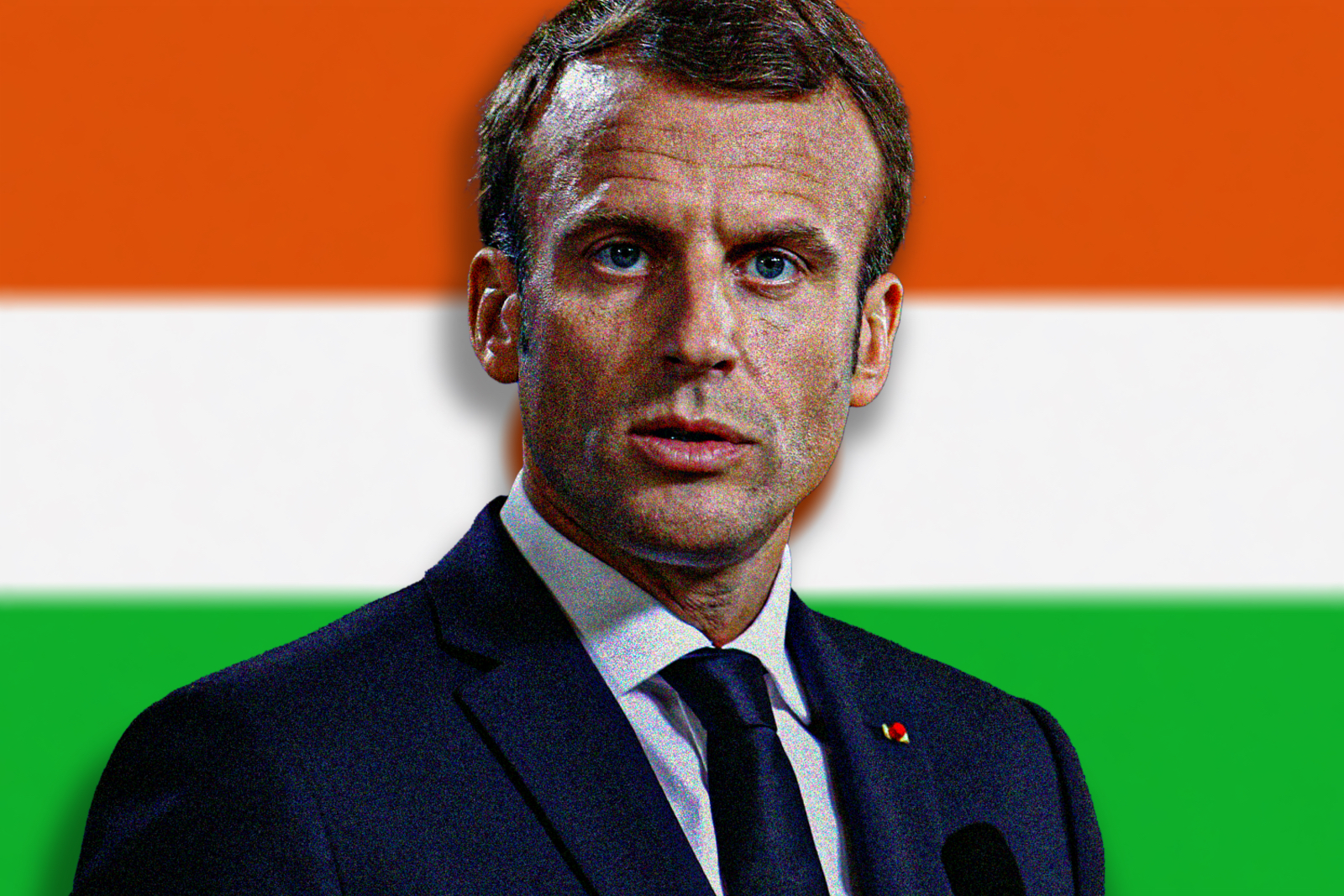
Au Revoir la France
In July, Niger’s presidential guard detained President Mohamed Bazoum. Shortly after declaring the coup a success, General Abdourahamane Tchiani assumed control of the government. Roughly a month later, the military seized power in Gabon and placed President Ali Bongo under house arrest. The longest stretch of military control is now seen in Africa.
Following the coup in Niger, protestors in Niamey, the country’s capital, screamed “Down with France” and raised Russian flags. Similarly, during Gabon’s coup, videos shared with CNN and uploaded on social media showed people dancing in the streets of Libreville, the country’s capital, cheering “liberated!”
After the military seized power in Niger, a crowd attacked the French embassy, prompting a rapid evacuation by French personnel. This type of event has happened before, even though it’s stunning to spectators right now. Following the coup in Mali last year, protesters waving Russian flags praised Mali’s cooperation with Russia and China while criticizing France and its supporters. But what does this all mean? Clearly, France’s influence in Africa, especially in its former colonies, is waning.
Other European nations, such as Britain, Belgium, and Portugal, also held colonies in Africa throughout the 18th and 19th centuries. However, France still commands greater power there than any of its contemporaries. Of these nations, only France still maintains military facilities in its former colonies. Since the 1960s, the French military has been notably prepared to intervene on behalf of friendly governments in the region. A pact between France and eleven other African nations was known as “the colonial pact.”
The intention was to keep France’s colonial control in Africa intact. The agreement was initially made on April 9, 1944, but it wasn’t enacted until December 19, 1947. The agreement recognized each member state’s autonomy, but it also gave France the right to use force if one of them felt threatened by another. This contract came into effect when France had to choose between siding with NATO or the USSR during the Cold War.
A study released by the French Parliament found that France has conducted military interventions in Africa more than 50 times. During the Cold War, France was eager to intervene in Africa primarily because its supposed duty to protect its interests from communism coincided with its desire to preserve regional primacy against Soviet influence.
Additionally, France has economic sway over its former colonies. The CFA franc, used as the national currency of numerous West African nations, is the most blatant example. The West African CFA franc and the Central African CFA franc, which are both tied to the euro, require member nations to deposit half of their reserves with the French treasury. While the advantages and downsides of this currency are debatable, it has long been controversial in West African politics since some view it as a sort of financial neo-colonialism.
Despite the influence of colonialism, France’s growing unpopularity in Africa is relatively new. France was well-liked throughout the continent as recently as the early twenty-tens. For instance, at the government’s request in 2013, France sent hundreds of troops to Mali as part of an anti-jihadist campaign. When then-President François Hollande arrived in Bamako, the nation’s capital, he was greeted with chants of “Vive la France!” and “Vive François Hollande!” Now chants of “Long Live Putin!” and “Down With France!” were echoed during the storming of the French embassy in Niger.
French President Emmanuel Macron made significant political investments in Africa during his first term, with pledges to end Françafrique as part of his vow to restart ties. But as recent events have shown, Macron’s attempts have fallen short, and as we can see, France’s standing and influence in Africa have decreased in recent years. This is due to a number of factors.
Despite France sending about 3,000 troops to the region as part of Operation Barkhane, which concluded in November 2022, the French military has been unable to drive out the jihadists terrorizing the Sahel. Political unrest is expanding in this part of Africa, and the number of jihadist-related incidents is on the rise. A common justification used by the generals who carry out military coups in Africa is that their nations require an army administration to protect them from the menace of Islamic insurgents. Some of these new military regimes have avoided the French army in favor of less traditional mercenaries. For instance, the new military administration in Mali recruited the Wagner Group to fill the hole left by French soldiers.
Emerging powers like Brazil, India, Russia, China, and Turkey have all increased their economic and political ties in Africa. China economically is playing the most significant role, with China-Africa trade rising 7.4% in the last seven months. According to Etienne Giros, president of an organization that represents French business interests on the continent, 10% of Africa’s foreign commerce in 2000 was with France. Since that time, it has decreased below 5%. Since France imports a substantial portion of its oil and uranium from Africa, France is more reliant on Africa in many respects.
Another factor contributing to France’s growing unpopularity in Africa is the country being challenged in cyberspace. A new generation of African politicians who are more anti-colonial than their predecessors and more open to alternative alliances are looking to strengthen ties with Russia and China as they portray the French as hypocritical and inept neocolonialists. Simply said, France has not done enough to refute these notions.
Using the conflict in Ukraine as an example, the West has been unable to convince African countries that Putin’s invasion of Ukraine has been bad for African food and energy security, which is why African countries are generally ambivalent on the issue. African nations are often divided on the subject since France, and a number of Western countries have been unable to persuade African governments that Putin’s invasion of Ukraine has seriously jeopardized their food and energy security.
African nations have made many attempts to break free from French rule. To make matters worse, the French government frequently retaliated against Africans in its former colonies. A prime example of this is the passing of Barthélemy Boganda, the president of the Central African Republic in 1959. Boganda severed many of the country’s links to France during his rule. In order to liberate the French colonies in Africa, notably the Central African Republic and the French Congo, he established the Movement for the Social Evolution of Black Africa.
In an effort to quell the Central African Republic’s rising independence movement, France detained Boganda for “endangering the peace” during his 1951 campaign. Shortly after his release, he tragically perished in an aircraft crash in March 1959. An inquiry into the disaster was undertaken by the French General Secretariat of Civil Aviation, but its findings were never made public. Parts of the report that stated explosive residue was discovered in the wreckage of Boganda’s aircraft were leaked by the French daily L’Express, and as a result, the French High Commissioner stopped all printings of L’Express in the Central African Republic.
Historical mistakes and memories of colonization have exacerbated all these factors, making France the ideal scapegoat. France is accused of neocolonial realism when it sends soldiers or invests in Africa; however, when Russia sends forces into Mali, it’s to defend Malians, and when China invests in Niger, it’s to promote African businesses, which is why there is a rift between France and Africa. In essence, France is undergoing a precarious situation on the continent.

